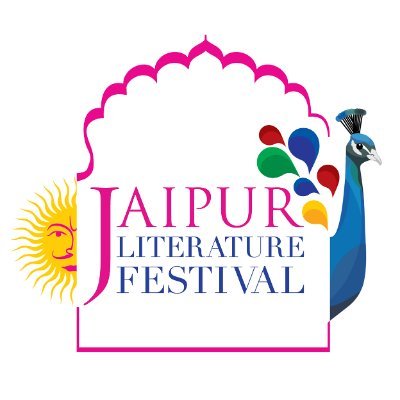The second day of the Jaipur Literature Festival spoke diverse voices
Jaipur: Jaipur Literature Festival 2022 kept up with the momentum set with a vibrant line-up on the 2nd day. There was tremendous diversity in sessions, speakers, and themes in the programming of the day. The audience witnessed soulful performances by acclaimed classical musicians Bindhumalini Narayanaswamy & Harpreet at the Morning Music segment. They began their set with music, art and literature, which was a perfect beginning to a day filled with conversations and discourse.
At the Durbar Hall, a conversation took the audience to the harsh reality of war zones. Best-selling author of many books including Our Bodies, Their Battlefield: What War Does to Women and I am Malala, co-written with Malala Yousafzai, Christina Lamb, and author of Looking for the Enemy: Mullah Omar and the Unknown Taliban, Bette Dam, were in conversation with the Festival’s Co-director, William Dalrymple. Dalrymple started the discussion by stating “Both Bette Dam and Christina Lamb have very bravely covered the full width of conflict in Afghanistan and seen the country through good and bad times.” Lamb mentioned about the failure of NATO in Ukraine as well as Afghanistan. She added, “In Ukraine, we see lots of women fighters which we did not see in Afghanistan at the time of war, but we did see how patriotic people could drive out a much superior military power.”
At another exciting session, Professor of Psychology at Harvard Steven Pinker discussed his latest book Rationality: What it is, Why it Seems Scarce, Why it Matters with Indian economist and columnist Mihir S. Sharma. While talking about his recent book, Pinker said, “It’s a concentration on my original domain of interest and expertise, namely, the human mind.” He also added, “One of the reasons why rationality matters is that it is human rationality that is responsible for most of our progress.”
Stellar Italian physicist Professor Giorgio Parisi, in conversation with writer and professor in the department of astronomy and physics at Yale University, Priyamvada Natarajan talked about his book, In Flight of Starlings: The Wonders of Complex Systems, which asks fundamental questions such as how ideas are born and what is the meaning of science in society. During the conversation Professor Parisi mentioned, “In real life, you have many goals yet you cannot satisfy all of them and then you have to choose a way where you can satisfy most of your goals.”
At another session, Member of Parliament Manish Tewari sat in conversation with senior fellow and director of the South Asia Program at Carnegie Mellon, Milan Vaishnav, to discuss his latest book 10 Flashpoints. The book is an insightful examination of the challenges that have characterised Indian foreign policy over the last two decades. Tewari said, “National security is essentially intertwined with a large number of issues, such as economic issues. In many senses of the word, this transgression by China opens up a vista of opportunities for India and if we are innovative in our thinking, if we are prepared to think outside of the box, it presents us with a lot of opportunities.” He also added, “India needs 30 years of peace to focus on its developmental needs and for that it needs to find a modus operandi on China and Pakistan.”
The Festival featured Booker Prize-winning novelist and playwright Damon Galgut. At a session concentrated on his book The Promise, Galgut noted that the book deals with a White South African family. It covers a span of 30-40 years through the device of using family funerals in different decades. “The title itself, The Promise, refers to something else which is, a promise that the youngest daughter of this family…believes she heard her father make at her mother’s request.” The book conveys the play of power in relationships with self, society and state against the backdrop of post-apartheid South Africa. He was in conversation with Professor of History at Harvard University, Maya Jasanoff.
At another virtual session, Indian actor and writer Sonali Bendre Behl and author Meghna Pant discussed how the passion for reading and writing became Bendre’s lifeline. She talked about her book The Modern Gurukul: My Experiments with Parenting later in the session and how she emerged through the toughest phases of life. Behl said, “Basically, it was just about reconnecting with my habit of reading. I really felt I was stagnating in my life and I was missing and craving the reading habit. So the idea was to form a book club where you get a few like-minded people and you know, discuss books, share ideas, and it was just something as simple as that.” Concluding the session, Pant described a little about her latest book Boys Don’t Cry.
The rich programme also featured BAFTA nominated actor Rupert Everett. He was in conversation with the author Siddharth Dhanvant Shanghvi discussing his life. Everett began the conversation by talking about movies and Oscar Wilde. The Picture of Dorian Gray was his first Oscar Wilde play that began his tryst with Wilde more intimately.“I think very much of Wilde as a tragic anti-hero. That’s the thing that has always fascinated me. I see Wilde almost as a Christ figure for the gay community,” said Everett.
The day ended with a session featuring award winning-novelist and essayist Jonathan Franzen along with author and journalist Anindita Ghose where they discussed his vivid portrayal of the political and social crosscurrents of the last fifty years in America and a family in the midst. Franzen’s latest book Crossroads is the first in a trilogy intended to depict three generations of shifting cultures. Beginning in the early 70s, it is the story of a midwestern family in the middle of a historical moment of moral crisis.

